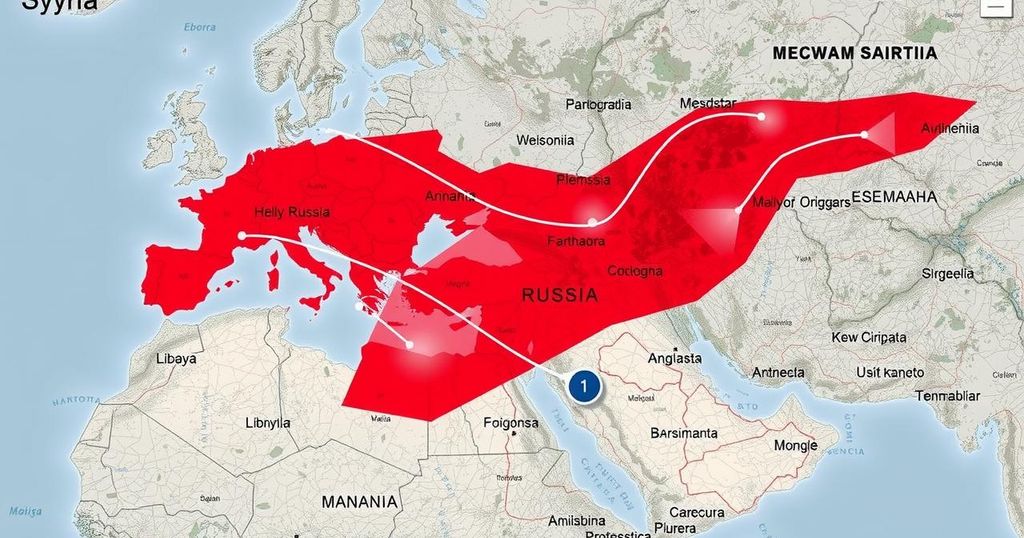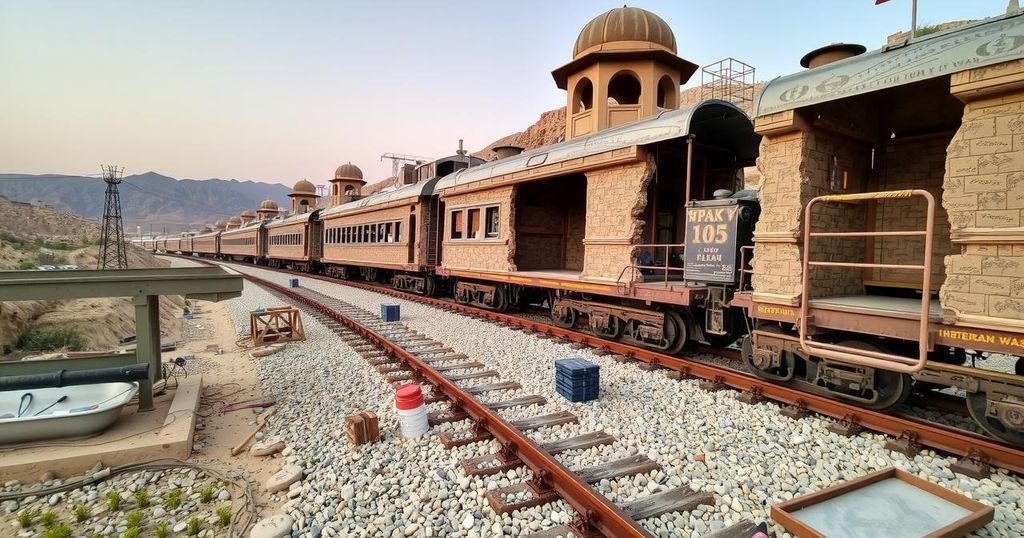World news
AFRICA, AFRICA CORPS, AL, AL - ASSAD, ASIA, BASHA, BASHAR AL - ASSAD, EUROPE/ASIA, GEOPOLITICS, HAYAT TAHRIR AL - SHAM, INTERNATIONAL CRISIS GROUP, LIBYA, MILITARY, NATO, OLEG IGNATOV, RUSSIA, RUSSIAN INVASION OF UKRAINE, SYRIA, TRIPOLI, US PRESIDENTIAL RACE, WAGNER GROUP, WAR
Li Chen
0 Comments
Analysts Consider Russia’s Strategic Shift from Syria to Libya
Russia is contemplating the military redeployment from Syria to Libya as it seeks to maintain its strategic influence in the Mediterranean and Africa. The withdrawal from Syrian bases amidst internal instability raises concerns regarding geopolitical balance, especially given Libya’s internal divisions and Russia’s ongoing interests on the continent. This potential increase in military presence in Libya could challenge NATO dynamics and alter power negotiations.
The potential for Russia to reallocate its military presence from Syria to Libya has raised significant questions regarding the geopolitical implications for Moscow as well as for Tripoli and adjacent regions. Although analysts contend that the loss of Syria may not substantially damage Russian interests, the Kremlin is intent on maintaining its strategic influence across the Mediterranean and Africa, territories it has cultivated over the past decade.
Throughout the Syrian conflict, Russia crucially supported the Assad regime, enhancing its military infrastructure by establishing the Khmeimim airbase and expanding its naval base in Tartous. Recent reports indicate a partial withdrawal from these bases amid the growing influence of Hayat Tahrir al-Sham in Syria, leading Russia to seek alternatives for its strategic military foothold. Libya is increasingly perceived as a viable option, particularly given that Russia has already established some presence there.
However, the implications of a strengthened Russian military presence in the unstable Libyan context remain uncertain. Russia’s military ambitions in Africa, which have been a focal point since 2017, suggest that the Kremlin views the continent as a key area of strategic competition among global powers. Currently, Russia’s Africa Corps operates in several African countries, supporting regimes that have distanced themselves from Western authorities, thereby consolidating its influence in the region.
The dilemmas arising from Libya’s internal power dynamics add yet another layer of complexity. Amid ongoing strife, the country is divided between two competing governments, both struggling for legitimate authority. The formation of a significant Russian military base in eastern Libya could embolden the eastern government led by Khalifa Haftar, possibly leaving Western powers with little leverage in negotiations.
As Libya continues to grapple with significant internal conflict and the prospects of national elections remain ambiguous, the power balance is fragile. The West’s interaction with Haftar, despite concerns over his close ties to Russia, highlights the delicate nature of geopolitical maneuvering within North Africa. Ultimately, further Russian military engagement in Libya signals potential shifts in the balance of power, not only in the region but also with respect to NATO interests in Europe.
In summary, Russia’s strategic diversion to Libya underlines a complex interplay of military interests, regional stability, and international power dynamics many analysts are closely monitoring.
The article discusses the potential strategic implications of Russia’s possible military redeployment from Syria to Libya. It highlights Russia’s involvement in Syria, particularly its military support to the Assad regime, and the establishment of key military bases. With the changing landscape in Syria influenced by entities such as Hayat Tahrir al-Sham, Russia appears to be considering Libya as an alternative stronghold to project its military influence in North Africa and the Mediterranean. The internal power struggle in Libya, along with the West’s response, complicates the scenario.
In conclusion, Russia’s contemplation of military repositioning from Syria to Libya is indicative of broader strategic ambitions to maintain influence in the Mediterranean and Africa. As political dynamics in Libya evolve, particularly regarding the dual governance struggle and potential national elections, the ramifications of Russian involvement could reshape both regional stability and Western diplomatic approaches. The delicate equilibrium renders Libya a focal point for geopolitical competition, particularly between Russian interests and NATO responses.
Original Source: www.aljazeera.com




Post Comment